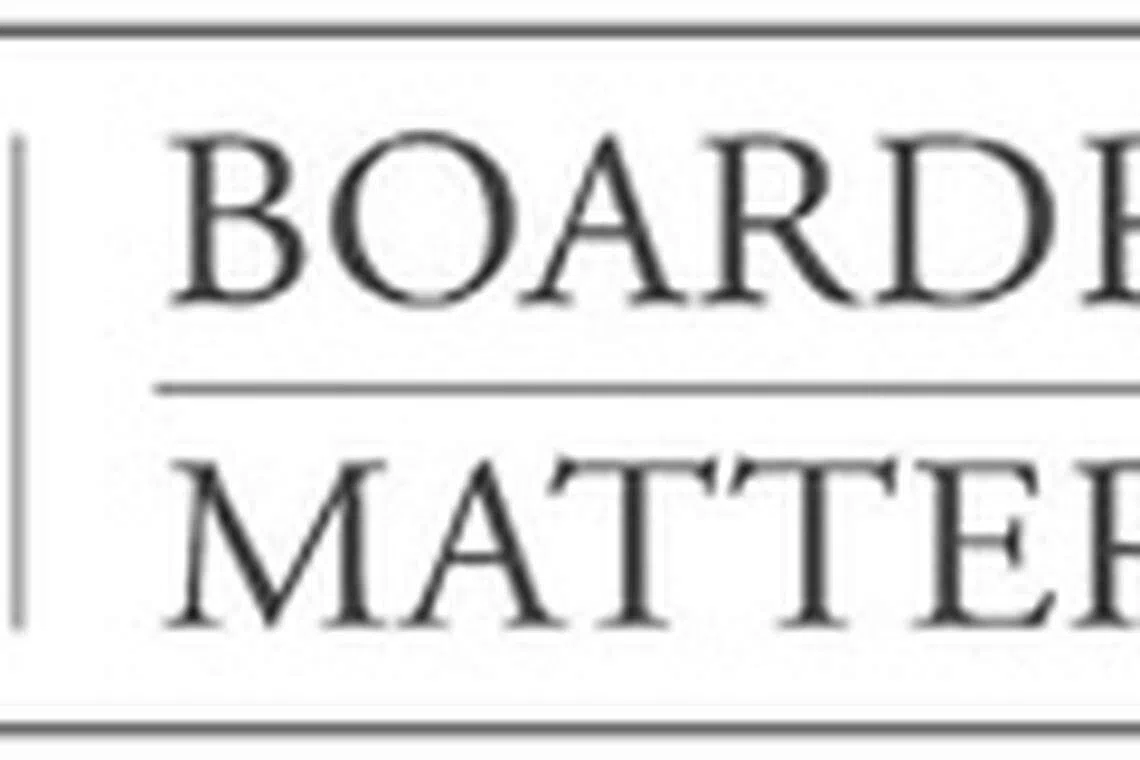Minuting the board meeting
Well-kept board minutes provide an accurate, balanced, impartial and objective record of the meeting.
THE board of directors is the top decision-making body of the company. Its meetings are the main means by which decisions are made. It is, therefore, important to keep a proper and permanent record, or minutes, of its discussions and decisions at these meetings.
But beyond being a record, minutes serve several important functions.
First, they drive action. They clarify why and by whom decisions are made, and who is responsible for acting on them. They provide valuable information especially to those who did not attend the meeting.
Secondly, minutes measure progress. A review of past minutes helps chart the progress of discussions and actions to be taken. In this way, they also act as an accountability tool for directors and management by making it clear just whose responsibility it is, or was, to perform certain actions.
Thirdly, minutes identify ownership of decisions. They show who voted for what. This can be legally important. For example, where a board member has a conflict of interest, and the minutes do not show that he (or she) abstained from the decision, it raises the question of whether there has been a breach of director duties. In the event of a legal suit, if particular board members abstained or voted against the majority, the minutes could, depending on the circumstances, expose them to, or insulate them from, liability.
Indeed, the minutes of board meetings are legal documents and they should be treated as such.
Legal framework
Section 188 of the Companies Act requires a company to, within one month of the date of the meeting, produce minutes of all meetings of its directors, and enter them in the minute book.
However, unlike the minutes of shareholder meetings, board minutes are not open for inspection by shareholders, even though they form part of the company's records. This makes sense as directors ought to be free to discuss confidential and sensitive issues relating to the company in an open and frank manner, without the risk of these matters being disclosed to the market or shareholders.
The Companies Act requires every company to appoint a suitably qualified company secretary who has responsibility, among other duties, for preparing and keeping the board minutes.
Form of the minutes
The format, style and content requirements of meeting minutes vary depending on the company. In general, an effective set of minutes should include:
While the style of writing will differ from one company secretary to another, ideally minutes should be written in such a way that someone who was not present at the meeting can easily follow the discussions, and understand how and why decisions were made. They should not be too long, or too short. Certainly, they are not expected to be a verbatim record. The key points of discussions should be captured, including opposing views, but the focus should be on the final decision. They should also include sufficient background information for future reference.
Editing and approving the minutes
It is good practice for a draft of the minutes to be sent to all board members for their review prior to finalisation.
Amendments to draft minutes on matters of style and content are acceptable, provided all key points of discussion and decisions or recommendations are recorded. Under no circumstances should a director be permitted to insert into the minutes points not made at the meeting, or to delete those that were. Minutes are a record of what was said at the meeting, not what should or could have been said.
If an error in the minutes is discovered at a later date, the board should agree on the nature and content of that error, and the correction should be minuted at a subsequent meeting, with a notation made in the original minutes.
Events that are pertinent to a particular discussion or decision, and which occur immediately after the meeting but before the finalisation of the minutes, may be inserted as "after notes". Doing so enhances the usefulness of the minutes.
The board needs to approve the minutes. In fact, the Companies Act requires that they be signed by the chairman of the meeting, or by the chairman of the next meeting. These minutes will then be prima facie evidence of the proceedings of the board meeting, unless the contrary can be proven.
In summary, well-kept board minutes provide an accurate, balanced, impartial and objective record of the meeting. They are legal records that should stand up to scrutiny in an external audit, a regulatory review, or legal proceedings. As such, they must be prepared, reviewed and approved with care.

BT is now on Telegram!
For daily updates on weekdays and specially selected content for the weekend. Subscribe to t.me/BizTimes
Companies & Markets
S&P slashes Boeing credit outlook as rating hovers above junk status
Honda to spend US$11 billion on EV strategy in Canada
GlaxoSmithKline sues Pfizer and BioNTech over Covid-19 vaccine technology
Mapletree Industrial Trust Q4 DPU rises 0.9% to S$0.0336
Nasdaq’s profit falls as shaky economy keeps IPO revival elusive
iFast Q1 net profit surges on ePension unit performance
